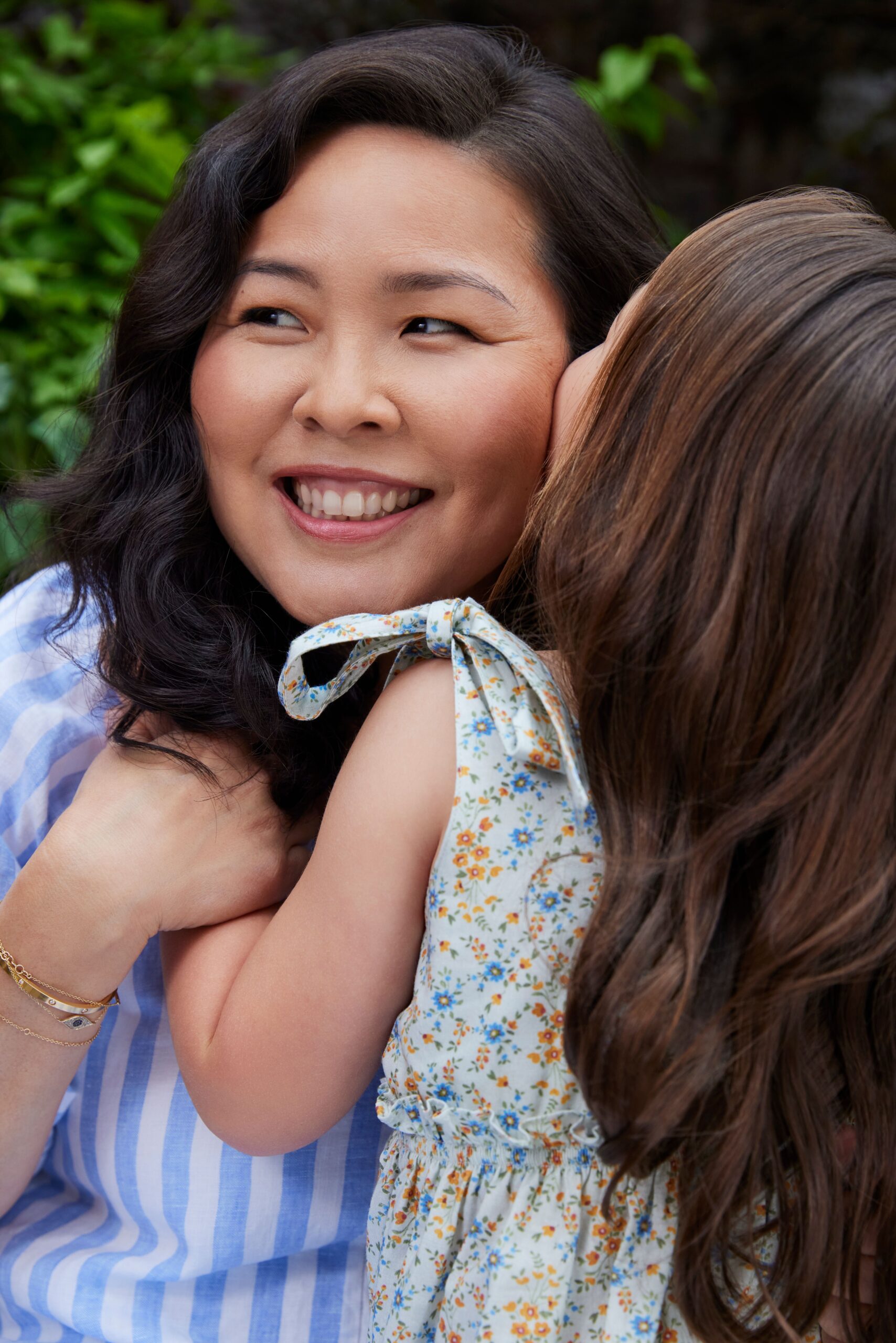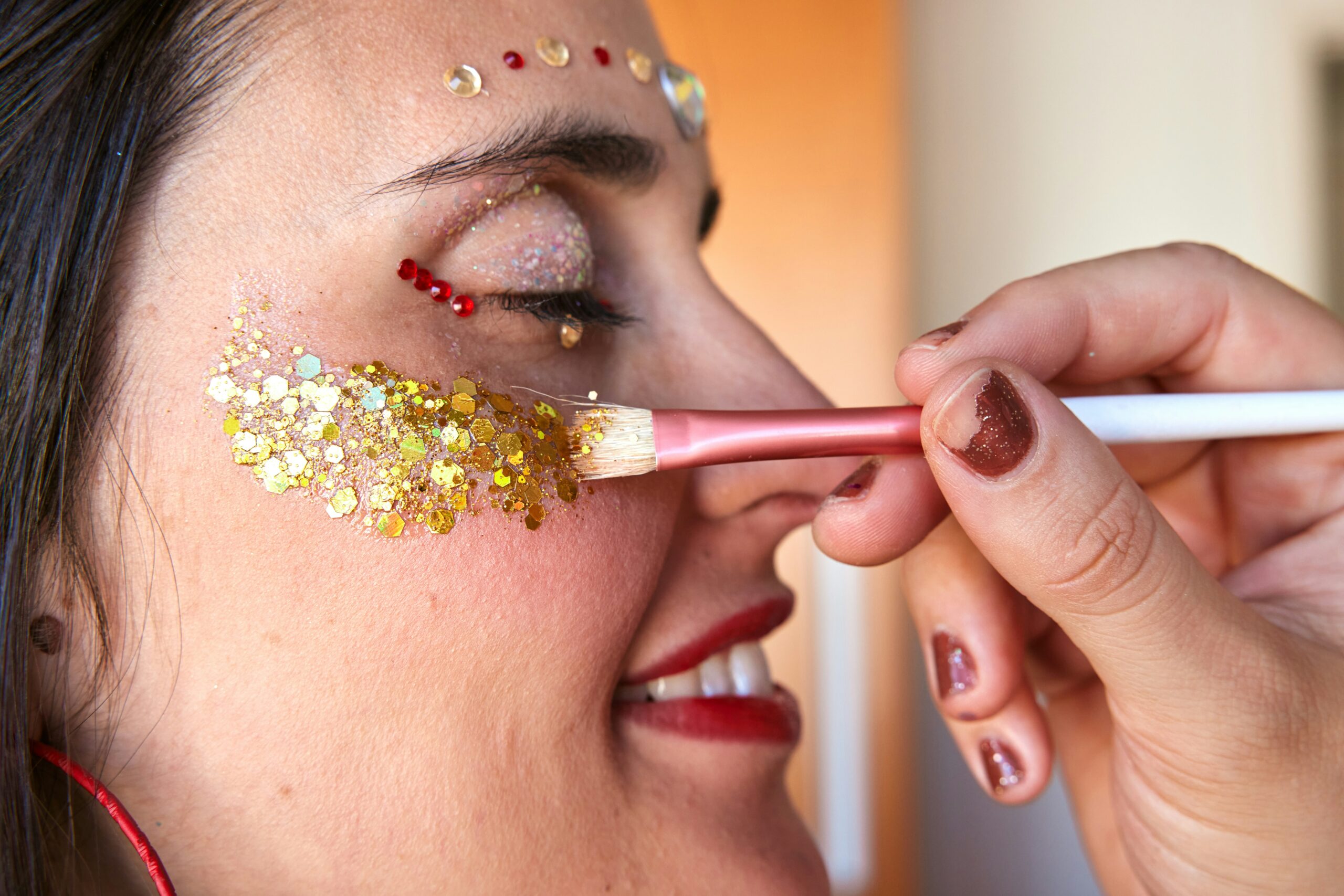I had many plans for motherhood before I became a mother. They seemed straightforward and anticipated. But my reality was far removed from my imagined truth.
I planned to have a baby before I turned thirty-five.
I planned a vaginal delivery with no epidural.
I planned to breastfeed for a full year.
Here’s what actually happened:
It took me seven years to get pregnant.
I had a required C-section.
I couldn’t breastfeed.
My friends and I talk about everything—or I thought we did until I became a mom. Then I realized there’s a whole complicated world of decisions, compromises, and experiences no one really talks about until they’re happening.
I spent all of my twenties trying not to get pregnant. Come to find out, my chances of getting pregnant on my own were close to zero.
It took seven years, including many rounds of IVF, and there was no guarantee I would have a baby.
I had to go moment by moment, swirling through doctor’s appointments, injections, and grief with no firm endpoint.
In the end, I was incredibly lucky to become pregnant—and I was ecstatic. Once I passed the twelve-week mark, I started to plan for my idyllic entry into motherhood starting with a birth plan. I was determined to give birth without medication. I attended hypnobirthing classes and prenatal Pilates every week to prepare my body mentally and physically. Each and every time I went to the bathroom, I practiced Lamaze breathing. I was hell-bent on doing it the way nature intended.
At thirty-eight weeks, I went in for a routine ultrasound. The tech waved the wand over my very pregnant belly and then stopped. My baby had turned breech. Medical schools don’t even teach OBs how to deliver breech babies anymore, so I had two weeks to wrap my head around a C-section—the opposite of what I had planned.
Up until that point, I had convinced myself that a C-section would be the worst thing to happen to me and my baby; that I would have attachment issues with my child for missing out on a vaginal birthing experience, and that her future microbiome would be destroyed.
None of this happened. I had an uneventful scheduled C-section and pain-free recovery. I fell in love with my baby the minute I heard her cry, even though I didn’t feel her exit my womb.
After my daughter, Nara, was born, I lay in the hospital bed trying to breastfeed. My mom was squishing my breast, the nurse was holding Nara, and I was trying to get her to latch. I thought you just took a baby and popped her on your boob—but it doesn’t work that way. She could barely latch, even with three women on the job.
When I got home, the situation was even worse. It was excruciatingly painful to nurse because Nara’s latch was off. I felt like I had no choice but to breastfeed in tears because my baby had to eat.
Choosing a formula was brutal. In many ways, it was the hardest part—now I felt like I was failing my baby, not just myself.
I purchased infant formula from a random guy on Facebook who was looking for people to group buy German formula at a discount. The first night we gave our daughter formula I had to have someone else feed her because I couldn’t get myself to feed her that bottle. The very next day I shut down formula feeding all together and I went back to breast feeding in tears. We went back and forth like this because the guilt and self judgement had a choke hold on me.
I didn’t feel great about any of the formula options, even the organic brands. I was shocked to find that all the organic formulas were the same formulations, made by the same company, just different brands. I felt so deceived.
For a year, I complained about baby formula to anyone who would listen. The ingredients, the standards, the manufacturing, the lack of innovation—complain, complain, complain. Finally, my husband asked, “Why don’t you make the formula you wanted for Nara?”
At this point in my career, I had worked at many startups, though none related to infant formula. I was intimidated by the complexity of what I wanted to do. I didn’t want to use an existing recipe from a big formula manufacturer and simply put my brand on it. I wanted to create a truly new product and a standard in infant nutrition—with as much organic milkfat as possible.
That meant a clinical trial.
That meant special clearance from the FDA for the use of whole milk.
That meant tracking down the very best of every single ingredient.
That meant a huge plan that would take years.
And plans had not been going my way for a while. I was afraid of failing.
But sitting at home with Nara—a healthy, happy one-year-old—my perspective started to shift. Nothing had gone according to plan. But I had not failed.
I persevered through seven years of IVF, and amazingly, I became pregnant. I had a C-section, yes—but it was a peaceful, calm delivery with incredible doctors that allowed my baby to be born safely. At one year old, my daughter was healthy and thriving.
If I created the formula I had wanted for Nara, things might not go according to plan. But they might just turn out to be incredible anyway. It took me more than seven years to create Nara Organics, an organic whole milk baby formula with the most milkfat in the United States.
Just like parenting, creating a company is an endless series of small moments, punctuated by a few big ones. When we hear about someone building a company, we hear about the exciting milestones. But it’s the days in between that determine whether you’ll ever get somewhere—just like it’s the moments in between the first tooth and the first day of kindergarten where motherhood really happens.
Seven years is a long time to stay focused and motivated, to lead a team when we didn’t yet have results to show for all of our effort. I cried many (many) times while creating Nara Organics—just like I cried many times while creating Nara.
But my experiences as a mother taught me well: things would not go according to plan. Seemingly bad things would happen. But most likely, they would turn out all right in the end. We had to keep going, moment by moment, with open minds and strong hearts.
Today, Nara is eight years old, and Nara Organics is just being born. The effort and the wait for each make them all the more precious.
My daughter is a miracle to me. She’s also a third grader who likes math and doesn’t want to practice her cello.
Nara Organics is one of a kind. It’s also one formula option for parents who need to feed their sweet babies.
Without Nara, there would be no Nara Organics. Without becoming a mother, I would not be a CEO. Everything I’ve done these last eight years, I’ve done for my own baby.
Author
-

Esther Hallam is the founder and CEO of Nara Organics, a company dedicated to setting a new standard in infant nutrition. After recognizing the lack of clean, organic formula options for her own child, Esther tapped her love for solving pain points and 20+ years of product management experience at leading tech and consumer companies like Google, Martha Stewart, and Gilt to create Nara Organics. Esther’s journey to found Nara Organics reflects her commitment to both high-quality products and a desire to make a meaningful impact on parents’ lives. Esther studied Sociology and Ethnic Studies at the University of California, Berkeley and was a part of Y Combinator's Summer 2012 cohort. She currently lives in Woodstock, New York with her husband, daughter Nara, and two dogs.
View all posts




